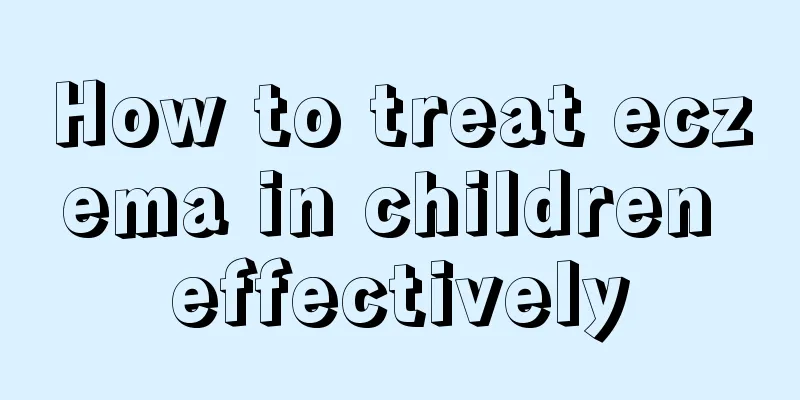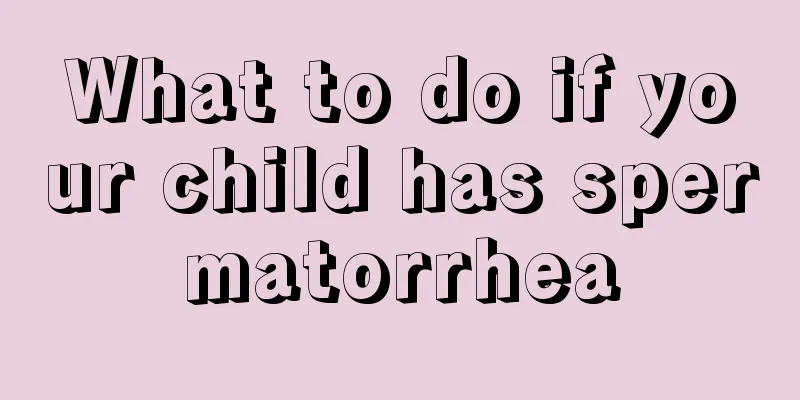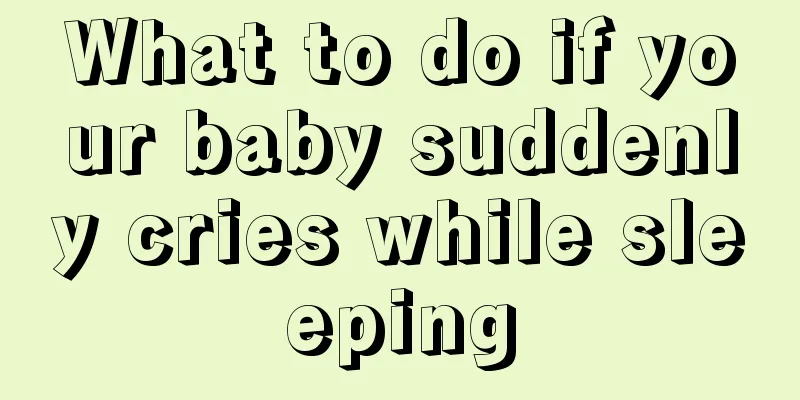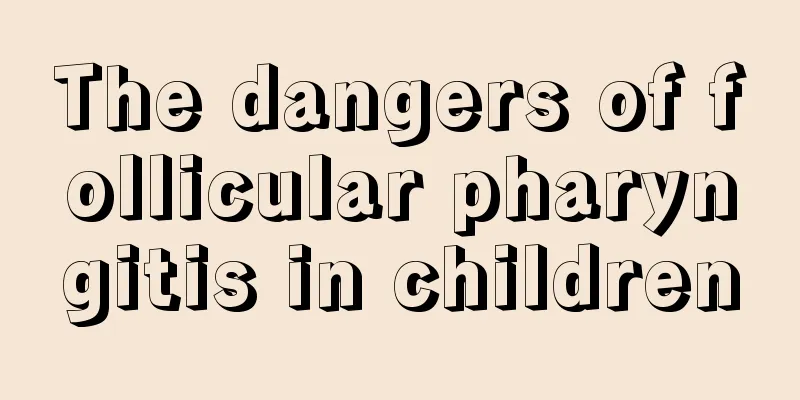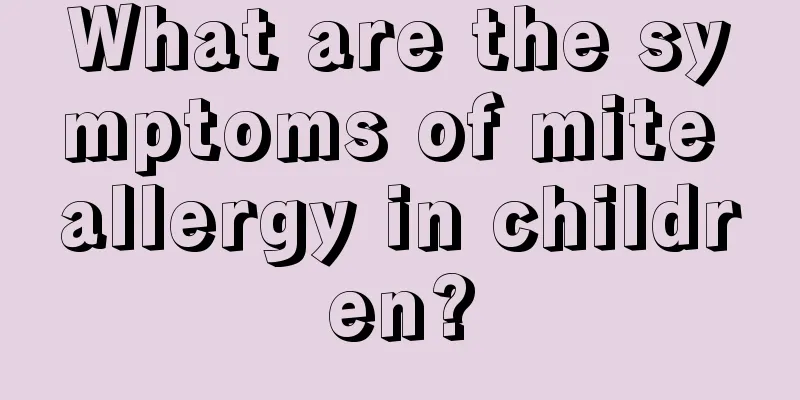What should I do if my child’s tonsils are inflamed and swollen?
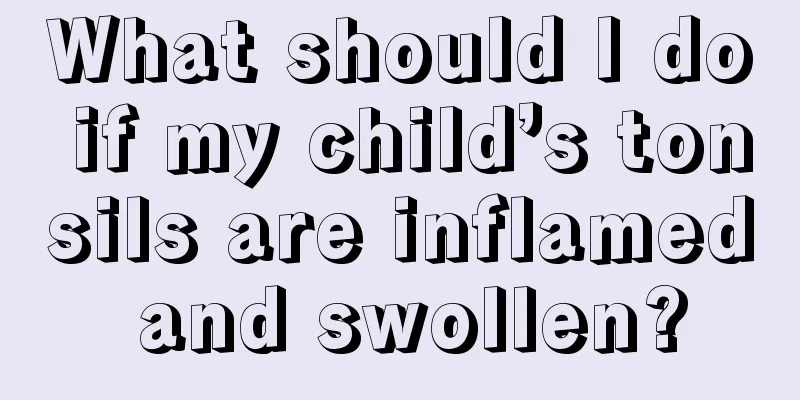
|
Swollen and inflamed tonsils is a common disease in children. It is mainly caused by inflammation in the baby's body, and repeated inflammation is due to the baby's low resistance. After the tonsils become inflamed, the baby's throat will feel extremely uncomfortable. So what should we do when a child's tonsils become inflamed and swollen? 1. The true face of tonsils The human pharynx is rich in lymphatic tissue, which gathers into clusters called tonsils. In fact, there are many types of tonsils, and what we usually call "tonsillitis" is actually an inflammation of the palatine tonsils located on both sides of the upper pharynx. Tonsils are an immune organ in the human body and the first line of defense against upper respiratory tract infections. They can resist various pathogenic microorganisms that invade the body and play a certain anti-disease role. This is especially important before the child is 4 years old. Why does tonsillitis “recur”? Tonsillitis can be divided into acute tonsillitis and chronic tonsillitis. Acute tonsillitis is a nonspecific acute inflammation of the palatine tonsils, often accompanied by a certain degree of acute inflammation of the pharyngeal mucosa and pharyngeal lymphoid tissue. The main pathogens are beta-hemolytic streptococci, staphylococci, etc.; adenovirus can also cause this disease; in addition, mixed infections of bacteria and viruses are also common. Among them, bacterial infection may be caused by direct invasion of external bacteria, or it may be caused by bacteria hidden in the tonsil crypts. When the body's resistance suddenly decreases due to factors such as cold, humidity, excessive fatigue, physical weakness, and stimulation by harmful gases, bacterial reproduction will increase and cause tonsillitis. If the treatment time is short and the treatment is incomplete, it will cause recurrence. Chronic tonsillitis is a chronic inflammation of the tonsils, which is mostly caused by repeated attacks of acute tonsillitis or poor crypt drainage, resulting in chronic inflammatory lesions in the tonsillar crypts and their substance. It may also occur after certain acute infectious diseases. 2. Tonsillitis should not be underestimated The symptoms of infection in children with tonsillitis are very obvious, generally manifested as: high fever of 39-40℃, accompanied by chills, general fatigue, headache and body pain, loss of appetite, nausea, vomiting, and it is also likely to cause pain in swallowing and constant crying in children. When examining the child's throat, you may also find pus on the tonsils - this is the most powerful diagnostic basis to distinguish it from other colds. Some children often have repeated attacks of acute tonsillitis, 4 to 5 times a year, or even once a month. Whenever the weather changes or the child is tired, his tonsils will become inflamed, forming a vicious cycle. Because each episode of tonsillitis consumes a lot of energy from the body, it often results in poor physical condition in children, with thin appearance and decreased resistance. Excessively enlarged tonsils can also cause breathing and swallowing difficulties and speech disorders. If accompanied by adenoid hypertrophy, it can cause nasal congestion, snoring and otitis media. If the abscess around the tonsils is severe and ruptures, it may spread to the neck and chest, and even cause death. Therefore, if you find that your baby has tonsillitis, especially recurrent inflammation, you must not take it lightly. 3. Treat tonsillitis promptly Tonsillitis is generally treated with a combination of etiological treatment and symptomatic treatment, and the general treatment time is 7 to 10 days. The doctor will first check to see whether the cause of your child's tonsillitis is a virus or bacteria. If it is caused by a virus, the doctor will treat it with antiviral drugs; if it is a bacterial infection (the most common is streptococcal infection), it will usually be treated with antibacterial drugs such as penicillin, cephalosporin, erythromycin, etc. In the past, some parents liked to take medicine themselves at home, thinking that antibiotics would work immediately, but they didn't know that this might backfire. Fortunately, the country has now stipulated that antibiotics cannot be purchased in pharmacies without a prescription, but parents still have to carefully store and use the "stock" at home. Symptomatic treatment mainly targets the uncomfortable symptoms of tonsillitis, including reducing fever, relieving sore throat, etc. It is generally recommended that parents let their children drink more water and rinse their mouths with salt water more often when they are sick. There is no specific method to prevent tonsillitis. The key is to let children exercise, strengthen their physical fitness, pay attention to the warmth or coldness of their clothes, avoid catching cold, and reduce or prevent colds. When children have mild inflammation of the tonsils, you can use some lozenges. Should tonsils be removed? Faced with children's recurring tonsillitis, many parents will ask whether they should remove the tonsils once and for all? In fact, everyone’s situation is different. Parents should not remove their baby's tonsils without principles, nor should they be too conservative. While following the doctor's advice, they should also distinguish between the indications and contraindications. |
<<: What should I do if my child has a fever and suddenly has convulsions?
>>: What are the standards for children's intellectual development?
Recommend
What should I do if my baby's gums are red, swollen and bleeding? Parents should reflect on themselves.
Children’s teeth are always fragile. Sometimes, f...
Are babies with late teething smart?
Some new parents are particularly anxious about t...
Child coughing and nasal congestion
Children's coughs react more severely than ad...
What should I do if my child has asymmetrical eyes?
Many parents will find that their baby's eyes...
Red bumps on baby's body like mosquito bites
In daily life, we may find that red bumps suddenl...
The first symptoms of a relapse of Kawasaki disease
Kawasaki disease is a disease with a very high in...
What to do if your child keeps squinting
The problem of children squinting their eyes cann...
Two-year-old baby walks on tiptoes
A two-year-old baby is just beginning to learn to...
How much milk does a four-month-old baby need in a day?
For babies, diet means drinking milk, and the amo...
Why does the baby sweat and smell?
The healthy growth of the baby is what parents ho...
Can children drink milk when they have a fever?
Milk is a particularly popular food. Although the...
What are some suitable weight loss methods for students?
For the army of weight loss, everyone is looking ...
What are the symptoms of acute otitis media in babies?
Acute otitis media is a common disease, and babie...
Symptoms of shrimp allergy in babies
Since babies have weak resistance, even a small c...
What are the methods to relieve infant cough?
When a baby has a problem with his body, you cann...


